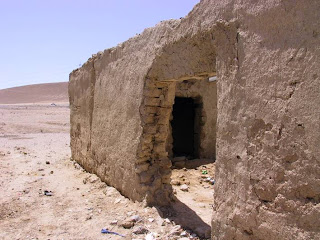Emirates Airline Festival of Literature supremo Isobel Abulhoul kindly invited me to join her Talking Of Books radio show on Dubai Eye, the UAE's leading talk radio station yesterday and spend an hour talking of
Olives, which the Talking of Books team had selected as their Book of the Week. Which was something of a yay, to say the least!
We chatted about self publishing and the merits of Kindles for a while, before moving on to talk
Olives. Everyone had enjoyed the book (hence book of the week, I guess!), which is always nice, although Isobel considered Paul Stokes to be a coward. I pointed out, as I often do, that Paul's not supposed to be a likeable character as such (Look at Meursault in L'etranger or Pinky in Brighton Rock. Likeable? Not). Paul represents, to a great degree, something in all of us we'd prefer not to think is there. We'd prefer if we were better than that, made better decisions than that. But I suspect there's a bit of Paul in all of us.
One of my hosts was interested in why Paul, a passive character in the main, lashes out at the policemen at the start of the book, which was a good point but then Paul has a tendency to lash out - he does at Anne later in the book, at Aisha as well after Daoud ticks him off with a 'hands off my sister' chat in the garden and, indeed, at Lynch which is, of course, a mistake on Paul's part.
Co-host John MacDonald seemed to find Lynch more interesting, which is really how it should be.
I was fascinated to find myself charged with giving Brits a hard time in the book, between Paul, Lynch and Anne, and even poor old TE Lawrence, it was felt that I had trotted out some very flawed people to represent perfidious Albion. I did what any sensible author in my position would have done and pleaded guilty.
Everyone found the water issues raised in the book fascinating and hadn't been aware of the scale of the problem, which was great to hear as one of my aims with
Olives was to heighten awareness of that very issue as well as that of humanity and identity in the face of glib news headlines.
Amusingly, the team had previously interviewed self-publishing poster child Amanda Hocking and had found her monosyllabic, disinterested replies shocking, cutting short the interview. I can just see her replying to every question with, like, 'whateverrrr'...
It’s going to be a busy week for
Olives, with a review published today in Read Magazine, while later in the week I have two readings in Beirut. Before then, I have a brace of interviews about the book.
I do feel sorry for authors who would rather focus on their writing and not have to get involved in the relentless mill of publicity. I’m no shrinking violet and I’m finding the constant attention-seeking wearying at this stage. And yet I’m grateful for each new opportunity, not only to talk about my work (which will never pall, I’m sure) but to get word out there about, hopefully interesting people enough to get them to pick up a copy, either online at Amazon, B&N or iBooks or at their local bookshop where they can now order
Olives under its Createspace ISBN-13: 978-1466465718











































